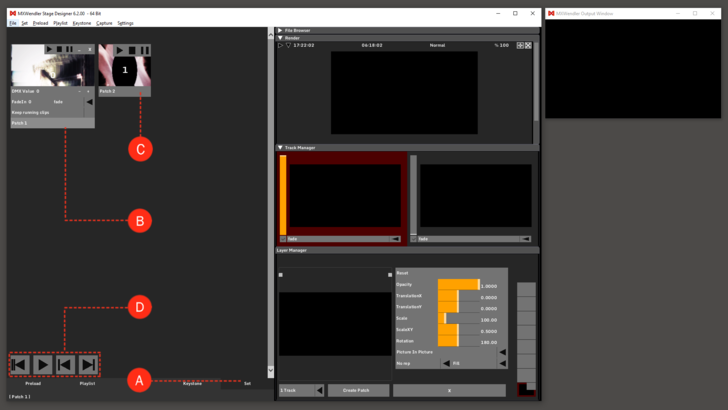Set: Difference between revisions
No edit summary |
No edit summary |
||
| Line 11: | Line 11: | ||
Set Buttons: Patches can be played sequentially. From left to right: '''(D)''' | Set Buttons: Patches can be played sequentially. From left to right: '''(D)''' | ||
:Back to the beginning, | :Back to the beginning, play, one step back, one step forward | ||
Also see: | Also see: | ||
*[[Tutorial Creating Compositions (Sets and Patches)]] | *[[Tutorial Creating Compositions (Sets and Patches)]] | ||
Revision as of 14:51, 15 January 2020
Patches can be saved from the Layer Manager in a Set and can be retrieved individually, or as a sequence. Complete compositions with multiple layers, as well as all parameters and media information can be stored in Set in different Patches. Please notice for latency-free output that Patches are just ‘lightweight’, only the references but not the media itself will be loaded. (A)
Clicking on a Patch opens it for editing the DMX Value, title, Fade In time and Type. (B)
IO Index: a patch can be triggered via a script, keyboard, DMX or Midi. Values and functions can be set in:
- Settings → Input and Output → DMX/MIDI/Keyboard
See also: Tutorial Creating an I/O Event
Patches can be played, stopped and paused. (C)
Set Buttons: Patches can be played sequentially. From left to right: (D)
- Back to the beginning, play, one step back, one step forward
Also see:
